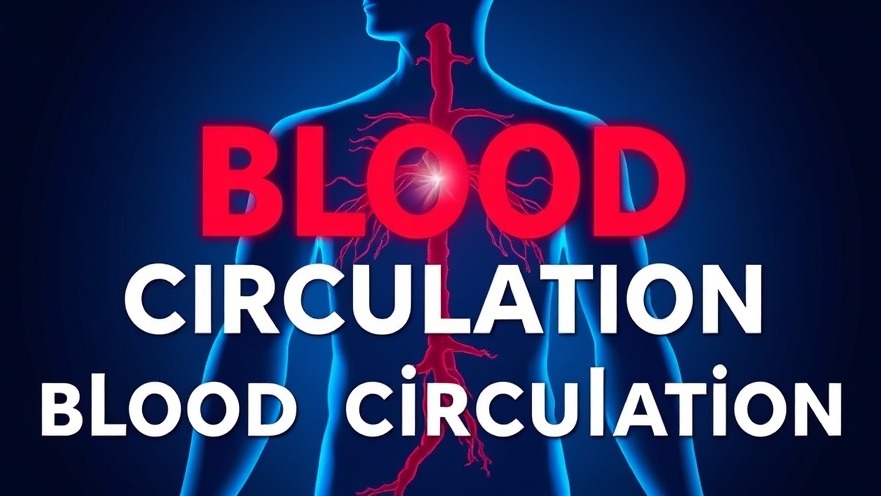
Unlocking the Secrets of Serotonin: How New Findings Could Transform Mental Health Treatment
In an era where mental health awareness is more crucial than ever, advancements in the understanding of serotonin receptors may lead to breakthroughs in effective treatments for various psychological disorders. Researchers at the Icahn School of Medicine at Mount Sinai have unveiled pivotal insights regarding the 5-HT1A serotonin receptor, a critical component regulating mood and emotion. Their study, recently published in Science Advances, offers a detailed look into how this receptor functions and why it matters for the future of antidepressant and antipsychotic medications.
The Heart of the Matter: Understanding the 5-HT1A Serotonin Receptor
At the molecular level, the 5-HT1A receptor acts like a control panel for brain cells, influencing their response to serotonin—a neurotransmitter essential for mood regulation. This receptor is not just a natural target for existing antidepressants but also plays a significant role in newer therapies, including psychedelic treatments that have gained traction for their potential mental health benefits.
Senior author Dr. Daniel Wacker and his team noted that despite its critical therapeutic role, comprehensive studies focusing on the receptor's properties have been lacking. This new discovery highlights the receptor's ability to predispose signaling pathways that can be adjusted by different drugs, opening doors to the development of more effective mental health treatments.
New Drug Development: Insight from Molecular Mechanisms
Innovative laboratory techniques have allowed researchers to investigate how distinct drugs activate the 5-HT1A receptor. Using high-resolution cryo-electron microscopy, they could visualize the molecular interactions between the receptor and internal signaling proteins known as G proteins. This advanced imaging technique reveals intricate details at near-atomic resolution, helping to decode the specific pathways activated by various drugs. Such insights enhance our understanding of why some medications work better than others for different patients.
For instance, the study indicates that the antipsychotic asenapine effectively engages a unique signaling pathway due to its notably weaker interaction with the receptor. This nuanced perspective reshapes how we think about drug-potency and efficacy in mental health treatments, promising a future where personalized medication regimens could be based on each patient's unique receptor interactions.
The Future of Mental Health Treatment: Opportunities and Predictions
The implications of this research extend beyond mere drug development. With a deeper understanding of how the 5-HT1A receptor operates, scientists might design therapies that prioritize specific pathways for targeted effects, potentially reducing side effects and increasing treatment efficacy. This is particularly relevant for conditions such as depression, anxiety, and schizophrenia, where conventional treatments often yield variable success rates.
Moreover, the findings align with the increasing interest in integrating holistic approaches to mental health, incorporating both pharmacological and lifestyle interventions focusing on health and wellness. For example, nutritional supplements and naturopathic methods may also play a role in conjunction with targeted therapies, supporting patients in achieving optimal mental and emotional well-being.
Bridging Science with Community Health: Expanding Access to Care
As advancements in serotonin receptor research progress, the challenge remains in ensuring accessibility of new treatments to communities, especially in areas like San Antonio where health and wellness centers could be instrumental in outreach. Community health initiatives focused on education about mental wellness and effective treatment options are crucial in demystifying psychiatric care and promoting earlier intervention.
Additionally, with the rise of health and wellness businesses, there is potential for collaboration between traditional medical practices and alternative health approaches, optimizing overall mental health strategies for diverse populations.
The Path Ahead: Making Informed Choices for Mental Wellness
As research progresses, individuals are encouraged to stay informed about new findings and treatment options for mental health conditions. Understanding how serotonin receptors influence mood can empower patients to have informed discussions with their healthcare providers about potential new therapies, including both conventional drugs and alternative medicinal practices.
Moreover, engaging in community health and wellness events can provide valuable resources and support networks, fostering environments where mental health is prioritized and openly discussed. Innovative approaches—including lifestyle medicine and naturopathy—are gaining attention for their roles in enhancing overall health and emotional resilience.
In conclusion, this study paves the way for next-generation mental health medications by unraveling the complexities of serotonin receptor signaling. As we continue to explore these developments, embracing holistic health approaches could lead to a healthier future for individuals across various communities.
Call to Action: Explore local health and wellness centers that offer programs tailored to mental health, to learn more about integrated treatment options and community support.
 Add Element
Add Element  Add Row
Add Row 



Write A Comment